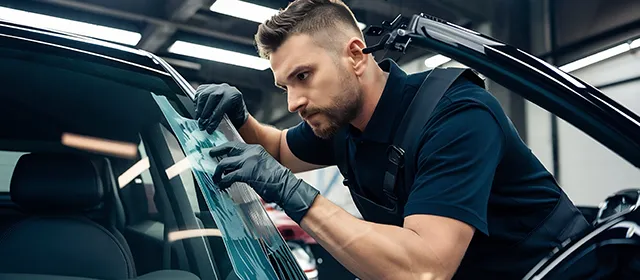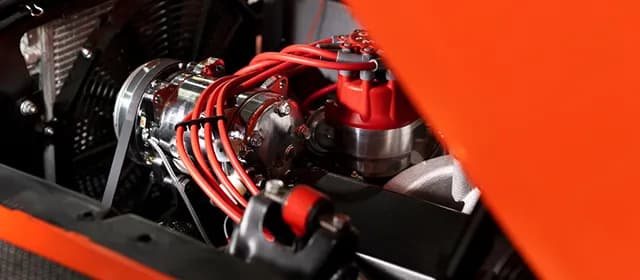As vehicle owners increasingly seek comfort, style, and protection, the demand for automotive tinting films continues to rise globally. These films not only enhance a car’s appearance but also offer benefits like UV protection, heat rejection, glare reduction, and increased privacy. Whether you're customizing your car or looking for functional upgrades, choosing the right window tint makes a big difference. The global automotive tinting film market is witnessing rapid innovation, with several top-tier companies leading the way through advanced materials and smart technology. According to Kings Research, the market is estimated to generate a revenue of $7.58 billion by 2032.
Here’s your go-to guide on the top 10 companies shaping the future of automotive tinting—recognized for their standout products, tech-forward thinking, and industry leadership.
Top 10 Companies in the Automotive Tinting Film Market
1. 3M
3M is a household name when it comes to innovation—and their automotive window films are no exception. They offer a wide range of products that block UV rays, reduce glare, and enhance the vehicle's appearance. With over 1,500 film products and advanced technologies like nano-ceramics and multi-layer optical films, 3M sets the standard for quality and performance.
2. Eastman Chemical Company (LLumar & SunTek)
Eastman is a major player in the automotive tinting film market, best known for its LLumar and SunTek brands. Their films offer excellent heat rejection and clarity, along with strong scratch resistance. Eastman continues to invest in R&D and has expanded its reach with acquisitions in Asia, further strengthening its global footprint.
Avery Dennison brings its materials science expertise to the automotive tinting market. Their window films are known for their durability, optical clarity, and advanced adhesive technologies. They’ve recently rolled out high-performance ceramic tints and are expanding operations in emerging markets like Southeast Asia.
4. Madico, Inc.
With over a century of experience, Madico specializes in high-performance films for automotive, architectural, and safety applications. Their automotive tints are praised for UV protection and energy savings. The company has also expanded through strategic acquisitions to enhance distribution and manufacturing capabilities.
5. Johnson Window Films, Inc.
Johnson Window Films is a U.S.-based company known for producing reliable and cost-effective window films. Their products provide solar control, privacy, and UV protection. The company also focuses on sustainable production and offers several eco-friendly film options.
6. Toray Plastics Inc.
Part of Japan’s Toray Industries, this company focuses on advanced polyester and plastic films. Though not solely focused on automotive applications, Toray’s high-performance films are used in tinting products for their durability and heat resistance. They are also leading the shift toward eco-friendly, recyclable materials.
7. Garware Hi-Tech Films
Garware is a major Indian manufacturer of polyester films, including solar control films for automotive use. They are well-known for providing high-quality, scratch-resistant tints that meet international standards. Garware’s global presence is growing, especially in Europe and North America.
8. XPEL, Inc.
XPEL is an emerging player in the automotive tinting film market. While they’re best known for their paint protection films, their tint lines—like Prime XR and XR Plus—are gaining attention for impressive heat and infrared rejection. XPEL’s focus on installer training and customer experience has helped them build a loyal user base.
9. Saint-Gobain Solar Gard
A division of French glass giant Saint-Gobain, Solar Gard offers premium automotive and architectural window films. Their products are known for combining performance, clarity, and environmental responsibility. They continue to innovate with new product lines tailored for electric and luxury vehicles.
10. Armolan Europe GmbH
Armolan is a European brand offering a range of automotive and architectural window films. While not as widely known as some competitors, the company is gaining traction across Europe, Asia, and the Middle East with its expanding product line and focus on affordability without compromising quality.
Key Trends Shaping the Automotive Tinting Film Market
● Shift Toward Nano-Ceramic and Infrared-Rejecting Films
One of the biggest trends in the automotive tinting film market is the growing demand for nano-ceramic films. These advanced films offer superior heat rejection, infrared (IR) blocking, and optical clarity without interfering with electronic signals like GPS or mobile networks. Unlike traditional dyed or metallic films, nano-ceramic tints are more durable and don't fade over time, making them a premium choice for modern consumers.
● Rising Preference for UV Protection and Skin Safety
Consumers are becoming more health-conscious, which is driving demand for window films that block up to 99% of harmful UV rays. Prolonged exposure to UV radiation inside cars can lead to skin damage and even increase the risk of skin cancer. As a result, tinting films with certified UV protection are gaining popularity, especially in sun-intensive regions.
● Growth in Electric and Luxury Vehicle Segment
The rise of electric vehicles (EVs) and premium cars has created new opportunities for the tinting film market. These vehicles often emphasize aesthetic appeal, energy efficiency, and passenger comfort, all of which can be enhanced with high-quality window tints. Top film manufacturers are now developing EV-specific tinting solutions that improve cabin cooling and reduce battery load by blocking solar heat.
● Focus on Sustainability and Eco-Friendly Materials
Environmental concerns are influencing product design across industries, and automotive films are no exception. Manufacturers are increasingly offering recyclable and low-emission films, using non-toxic adhesives and eco-friendly manufacturing processes. This trend is especially strong in Europe, where green regulations are stricter.
● Smart Tinting and Adaptive Films
A futuristic trend gaining traction is the development of smart or electrochromic films. These films can adjust their tint level automatically based on sunlight or temperature, offering dynamic protection and comfort. Although still in the early stages, this technology is expected to disrupt the premium segment in the coming years.
● Expansion of Dealer Networks and Installation Services
With rising demand, companies are investing heavily in authorized dealer networks, training programs, and professional installation services. Brands like XPEL and 3M have built strong installer communities that ensure consistent product performance, which adds value to their brand and builds customer trust.
● Integration with Automotive OEMs
Automotive OEMs (Original Equipment Manufacturers) are starting to partner directly with film producers to offer factory-installed tinting options. This trend is helping brands reach new customers at the vehicle manufacturing stage, while also ensuring better product integration and performance standards.
Final Thoughts
The automotive tinting film market is evolving with cutting-edge technology, rising consumer awareness, and increasing environmental regulations. From nano-ceramic films to sustainable solutions, top brands are pushing the limits of performance and protection. Companies like 3M, Eastman Chemical Company, and XPEL are not only innovating but also expanding their global reach, setting new standards in the industry.
Whether you're upgrading your vehicle or exploring B2B opportunities, choosing a trusted name in the automotive window film market can ensure long-term value and satisfaction. As consumer preferences shift toward premium and eco-conscious solutions, the companies mentioned above are well-positioned to lead the next phase of growth in the automotive tinting film industry.

.webp&w=3840&q=75&dpl=dpl_HkC6vhtovZ9gdp5f4CCyQszcdnYs)

